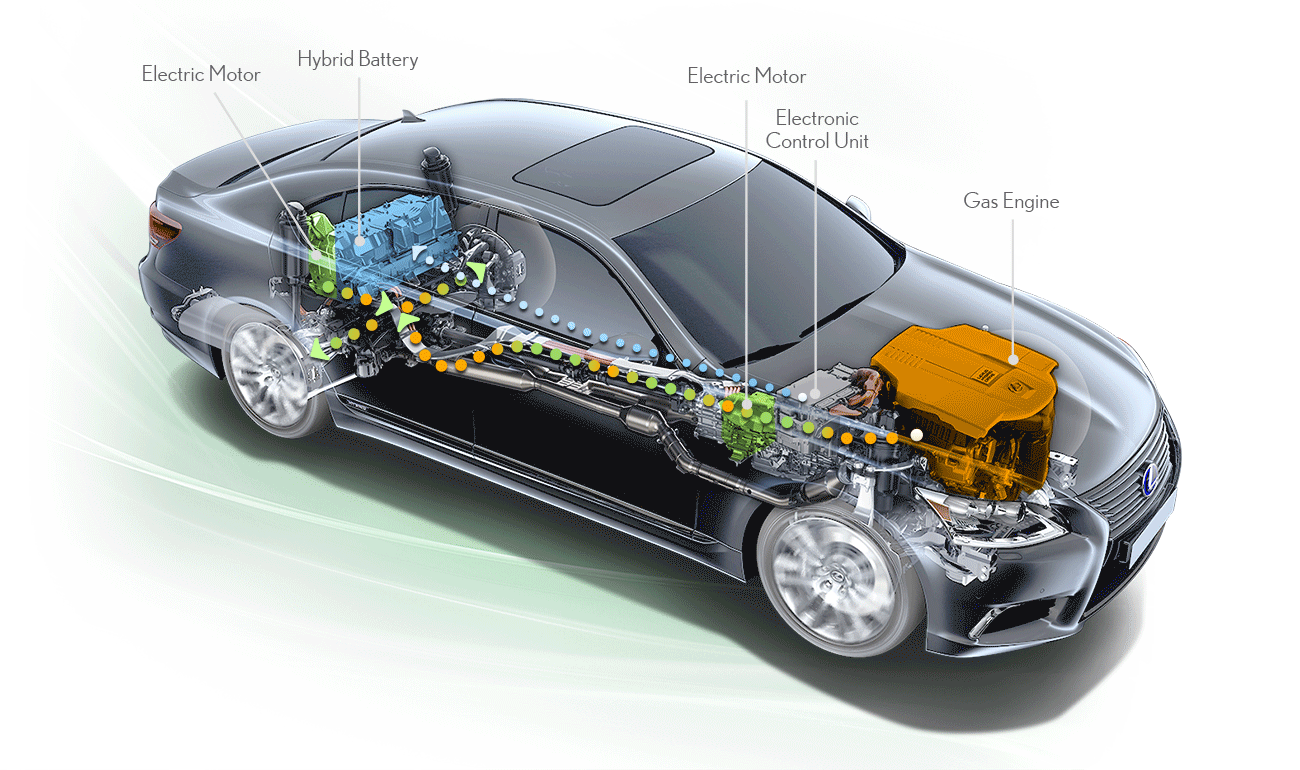Automotive Fuel Cell Market size was valued at USD 2.48 Billion in 2023 and is projected to reach USD 187.98 Billion by 2033, growing at a CAGR of 57.51% from 2024 to 2033.
Introduction:
The Automotive Fuel Cell Market represents a transformative shift in the automotive industry, offering a sustainable solution to transportation challenges. This comprehensive overview delves into the definition, market dynamics, technological advancements, key players, challenges, and future prospects of automotive fuel cells.
Definition:
Automotive fuel cells are electrochemical devices that convert hydrogen and oxygen into electricity, powering electric motors to propel vehicles. Unlike conventional internal combustion engines, fuel cells produce zero emissions, with water vapor as the only byproduct. Hydrogen fuel, stored in onboard tanks, serves as the primary fuel source for fuel cell vehicles (FCVs), offering long-range capabilities and rapid refueling.
Market Dynamics:
The Automotive Fuel Cell Market is driven by several key factors:
- Environmental Regulations: Stringent emissions regulations and carbon reduction targets imposed by governments worldwide are incentivizing automakers to invest in zero-emission technologies like fuel cells to comply with regulatory requirements and mitigate climate change.
- Energy Security: Hydrogen fuel offers energy security by diversifying fuel sources and reducing dependence on fossil fuels, enhancing energy resilience and sustainability in transportation.
- Market Growth: The growing demand for clean, sustainable transportation solutions, coupled with advancements in fuel cell technology, infrastructure development, and government incentives, is fueling market growth and adoption of fuel cell vehicles globally.
- Infrastructure Development: Increasing investments in hydrogen infrastructure, including hydrogen production, refueling stations, and distribution networks, are expanding the accessibility and availability of hydrogen fuel, supporting the deployment of fuel cell vehicles.
- Collaborative Partnerships: Collaborations between automakers, technology suppliers, energy companies, and government agencies are driving innovation, standardization, and cost reduction in fuel cell technology, accelerating market growth and commercialization.
Technological Advancements:
The Automotive Fuel Cell Market has witnessed significant technological advancements, including:
- Fuel Cell Stack Efficiency: Improvements in fuel cell stack design, materials, and manufacturing processes have enhanced stack efficiency, power density, and durability, leading to higher performance and reliability of fuel cell vehicles.
- Hydrogen Storage: Innovations in hydrogen storage technologies, such as advanced composite materials, high-pressure tanks, and solid-state hydrogen storage, have increased storage capacity, safety, and onboard range of fuel cell vehicles.
- Cost Reduction: Continuous research and development efforts, economies of scale, and manufacturing innovations have contributed to cost reductions in fuel cell components, system integration, and production, making fuel cell vehicles more cost-competitive and accessible.
- Hydrogen Production: Advancements in hydrogen production methods, including electrolysis, steam methane reforming, and renewable hydrogen production, are driving down the cost of hydrogen fuel and improving the sustainability of hydrogen supply chains.
Key Players:
The Automotive Fuel Cell Market is characterized by a diverse ecosystem of key players, including:
- Automakers: Leading automakers such as Toyota, Hyundai, Honda, and Daimler are investing in fuel cell technology and commercializing fuel cell vehicles, offering a range of passenger cars, commercial vehicles, and buses powered by fuel cells.
- Technology Suppliers: Fuel cell stack manufacturers, component suppliers, and system integrators, including Ballard Power Systems, Plug Power, Hydrogenics (now part of Cummins), and FuelCell Energy, play a crucial role in developing and supplying fuel cell systems and components to automakers.
- Energy Companies: Energy companies and utilities are investing in hydrogen infrastructure development, hydrogen production, and refueling station deployment to support the adoption of fuel cell vehicles and promote the use of hydrogen as a clean energy carrier.
- Government Agencies: Government agencies and research institutions are funding research and development projects, providing incentives, and implementing policies to support the development, demonstration, and deployment of fuel cell vehicles and hydrogen infrastructure.
Receive the FREE Sample Report of Automotive Fuel Cell Market Research Insights @ https://stringentdatalytics.com/sample-request/automotive-fuel-cell-market/13358/
Market Segmentations:
Global Automotive Fuel Cell Market: By Company
• Ballard
• Nuvera Fuel Cells LLC
• Nedstack
• SFC Energy AG
• Elcogen AS
• Fuel Cell Energy Inc.
• ITM Power
• Proton Power System PLC
Global Automotive Fuel Cell Market: By Electrolyte type
• Polymer Electronic Membrane Fuel Cell (PEMFC
• Direct Methanol Fuel Cell
• Alkaline Fuel Cell
• Phosphoric Acid Fuel Cell (PAFC)
Global Automotive Fuel Cell Market: By Fuel Type
• Hydrogen
• Methanol
Global Automotive Fuel Cell Market: By Component
• Fuel Processor
• Fuel Stack
• Power Conditioner
• Air Compressor
• Humidifier
Global Automotive Fuel Cell Market: By Vehicle Type
• Passenger car
• Commercial Vehicle
Regional Analysis of Global Automotive Fuel Cell Market
All the regional segmentation has been studied based on recent and future trends, and the market is forecasted throughout the prediction period. The countries covered in the regional analysis of the Global Automotive Fuel Cell market report are U.S., Canada, and Mexico in North America, Germany, France, U.K., Russia, Italy, Spain, Turkey, Netherlands, Switzerland, Belgium, and Rest of Europe in Europe, Singapore, Malaysia, Australia, Thailand, Indonesia, Philippines, China, Japan, India, South Korea, Rest of Asia-Pacific (APAC) in the Asia-Pacific (APAC), Saudi Arabia, U.A.E, South Africa, Egypt, Israel, Rest of Middle East and Africa (MEA) as a part of Middle East and Africa (MEA), and Argentina, Brazil, and Rest of South America as part of South America.
Click to Purchase Automotive Fuel Cell Market Research Report @ https://stringentdatalytics.com/purchase/automotive-fuel-cell-market/13358/?license=single
Challenges:
Despite the promising prospects, the Automotive Fuel Cell Market faces several challenges:
- Cost Competitiveness: The high cost of fuel cell vehicles, hydrogen production, and infrastructure remains a significant barrier to widespread adoption, requiring further cost reductions and economies of scale to achieve cost competitiveness with conventional vehicles.
- Infrastructure Availability: Limited hydrogen infrastructure, including refueling stations and distribution networks, presents challenges for fuel cell vehicle deployment, requiring coordinated efforts and investments to expand infrastructure coverage and accessibility.
- Hydrogen Production and Supply: Scaling up hydrogen production capacity, ensuring sustainable hydrogen supply, and reducing the carbon footprint of hydrogen production are critical challenges that need to be addressed to support the long-term viability of fuel cell vehicles.
- Consumer Awareness and Acceptance: Educating consumers about the benefits of fuel cell vehicles, addressing concerns about hydrogen safety, range anxiety, and refueling convenience, and building consumer confidence are essential for increasing market acceptance and adoption.
Future Prospects:
Despite challenges, the Automotive Fuel Cell Market holds promising prospects:
- Market Growth: The market is expected to witness significant growth driven by increasing investments, technological advancements, policy support, and growing consumer demand for clean, sustainable transportation solutions.
- Industry Collaboration: Collaborative efforts between stakeholders, including automakers, technology suppliers, energy companies, governments, and research institutions, will drive innovation, standardization, and market expansion.
- Technology Advancements: Continued advancements in fuel cell technology, hydrogen production, storage, and infrastructure will improve the performance, efficiency, and cost-effectiveness of fuel cell vehicles, making them more competitive with conventional vehicles.
- Policy Support: Government incentives, subsidies, regulations, and targets supporting zero-emission vehicles and hydrogen infrastructure development will create favorable market conditions and accelerate the adoption of fuel cell vehicles.
Conclusion:
The Automotive Fuel Cell Market represents a transformative shift towards sustainable mobility, offering a clean, efficient, and versatile alternative to conventional vehicles. With ongoing advancements in technology, infrastructure development, and policy support, fuel cell vehicles are poised to play a significant role in decarbonizing the transportation sector and shaping the future of mobility.
About Stringent Datalytics
Stringent Datalytics offers both custom and syndicated market research reports. Custom market research reports are tailored to a specific client’s needs and requirements. These reports provide unique insights into a particular industry or market segment and can help businesses make informed decisions about their strategies and operations.
Syndicated market research reports, on the other hand, are pre-existing reports that are available for purchase by multiple clients. These reports are often produced on a regular basis, such as annually or quarterly, and cover a broad range of industries and market segments. Syndicated reports provide clients with insights into industry trends, market sizes, and competitive landscapes. By offering both custom and syndicated reports, Stringent Datalytics can provide clients with a range of market research solutions that can be customized to their specific needs.
Reach US
Stringent Datalytics
+1 346 666 6655
Social Channels:
Linkedin | Facebook | Twitter | YouTube




Leave a Reply